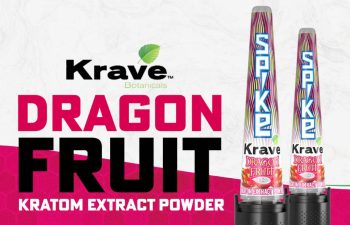If you’ve ever wanted to live right on the edge, try managing a payment processor relationship as a “high-risk merchant account,” where even if you follow all the rules, you can still get hit with higher fees, longer payout times, and enough paperwork to qualify as a second job – or lose the relationship entirely, and most likely suddenly. Selling perfectly legal products like glass pipes, rolling papers, or CBD shouldn’t feel like applying for a top-secret security clearance. Yet, in the eyes of the financial industry, smoke shops live in the high-risk lane.
While securing and managing a credit card processor can feel like being stuck in a bureaucratic maze with a blindfold on, it is navigable – with the right map. Here’s an all-in-one guide to understanding how to process plastic without pulling your hair out.
High-Risk Realities
First things first: it’s not personal. Being labeled “high-risk” has less to do with personal business practices and more to do with the products being sold and the federal uncertainty around them. This category includes everything from tobacco and CBD to glassware and kratom. Even if you’re operating entirely within state laws, many banks and processors get jittery around anything remotely connected to the industry.
Mainstream platforms like Square, PayPal, and Stripe often approve accounts quickly and then just as quickly shut them down when their algorithm catches on. And when they drop you, it’s usually without warning or recourse. Is getting ghosted by a processor worse than getting ghosted by a date? Probably. Better to avoid those heartaches from the jump.
Instead, canna-businesses should look to payment processors that specialize in high-risk industries. Companies like Durango Merchant Services, PaymentCloud, High Wire Payments, and Easy Pay Direct have built their reputations around navigating this exact space. They understand compliance hurdles and aren’t shocked by your inventory list. These providers come with better approval odds, real humans who understand compliance red flags, and generally fewer surprise shutdown emails.
Be prepared to pay for the privilege, however. Expect fees in the four to six percent range, compared to the two to three percent that low-risk merchants enjoy. It’s the price of doing business in a misunderstood industry. Annoying? Yes. But a small price to pay for the stability and support these providers offer.
Working with high-risk processors does come with some caveats. Beware of the dreaded rolling reserve – where a portion of sales (often around five to 10 percent) is held back for a set period, like six months, to protect against chargebacks or fraud. Before signing anything, get crystal clear on reserve terms. How much will be withheld? For how long? Can it be renegotiated down the line?
After all this, be prepared for more intensive compliance requirements looming right around the corner. Being a high risk merchant comes with more paperwork than a tax audit, with banks and processors requesting documentation like business licenses, supplier verification, age verification systems and product details. It’s a hassle, but staying transparent builds trust with the processor and helps prevent surprise shutdowns.
On top of that, all merchants, high-risk or not, must comply with the Payment Card Industry Data Security Standard, or PCI DSS. This industry-standard framework ensures businesses securely store and transmit customer card info. Even if you’re not handling the tech side directly, your processor is, and they’ll need you to follow protocols. If you’re taking any payments online or saving customer data, you’ll want to make sure you’re covered from a cybersecurity standpoint.
While securing and managing a credit card processor can feel like being stuck in a bureaucratic maze with a blindfold on, it is navigable– with the right map.
Ditch the Aggregators
Payment aggregators like Square and PayPal can seem tempting with their plug-and-play simplicity. They’re convenient, intuitive, and cheap — until they’re not. These platforms operate as aggregators, meaning they lump your business in with thousands of others under a single merchant umbrella. You might fly under the radar for a few weeks or months, but once their systems sniff out your inventory, it’s game over, and your account can be frozen or closed without notice. That means no transactions and no deposits. For a business that depends on steady cash flow, that kind of instability just isn’t worth the risk.
Stick with a dedicated high-risk processor who knows the industry and is in it for the long haul. These providers conduct more upfront due diligence, which means fewer surprises down the line but also means longer approval times. They know you sell CBD-infused bath bombs or banana bongs, and they’re fine with that as long as you’re compliant.
Keep Chargebacks and Fraud in Check
High-risk industries often face higher chargeback rates, where customers dispute a transaction with their bank. One too many disputes and a processor may pull the plug, so prevention is key. A good defense strategy looks like:
- Use clear billing descriptors that match your shop name.
- Post a strong return policy right at checkout (and on your site).
- Deliver stellar customer service. Sometimes a friendly refund is cheaper than a chargeback, and strong customer service can be one of your best defenses.
- Consider fraud prevention tools like address verification, geolocation, and velocity checks.
- And most importantly, monitor your monthly volume.
Some processors set limits. If a big sales push is upcoming, let the provider know ahead of time to avoid red flags or account holds. Sudden jumps in volume can trigger fraud flags, even if sales are 100 percent legitimate.
Credit card processing isn’t impossible; it’s just… complicated. With the right processor, proactive compliance, and chargeback/fraud management, it’s possible to run a stable, secure, and stress-free checkout system that works for both the business as well as customers. Transparency with the provider goes a long way; paperwork is your “friend,” and flexibility is key. The more you lean into the unique challenges of this industry, the better equipped you’ll be to grow your business without interruption. And until high-risk is no longer a thing, keep those receipts and rest easy knowing you’re swiping smart.
Stay ahead of the curve and keep your finger on the pulse with our other Industry Insights articles and interviews!





















